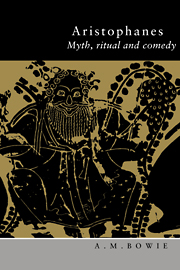Summary
Economic and social circumstances
Plutus is Aristophanes' last surviving play, produced shortly before his death in 388. Its subject is wealth and its place in society. After the defeat in the Peloponnesian War, Athens' economy naturally suffered a severe decline, but there is a tendency now among economic historians to avoid painting too black a picture of the early decades of the fourth century. True, she had lost the great revenues that accrued to her from the empire, her supplies of corn had been interrupted, many slaves had fled from the city in the last years of the war and the Laurium mines were no longer worked, but within a decade of the crucial defeat at Aegospotami Athens was once again involved in a major war and was clearly once again a power to be reckoned with. The big economic problems which beset the rest of Greece seem to have affected Athens less, and as a result the tensions between rich and poor seem to have been less traumatic. There were indeed those who made a great deal of money very quickly after the defeat, and these are pilloried in the orators; there was too a concentration of wealth in the hands of certain people, and a disinclination on the part of the rich to contribute to the costs of the city; the poorer citizens had either to work if they could to make a living, or to depend on state-aid which provided only a minimal existence.
- Type
- Chapter
- Information
- AristophanesMyth, Ritual and Comedy, pp. 268 - 291Publisher: Cambridge University PressPrint publication year: 1993



